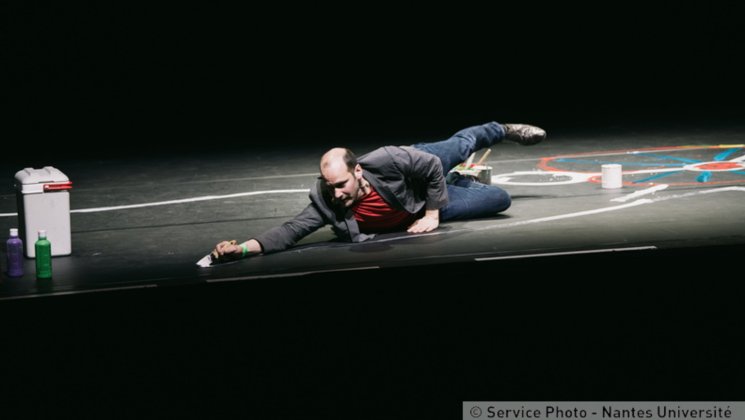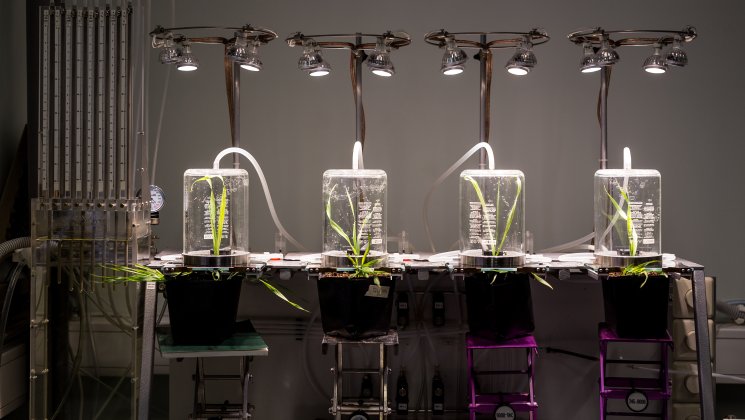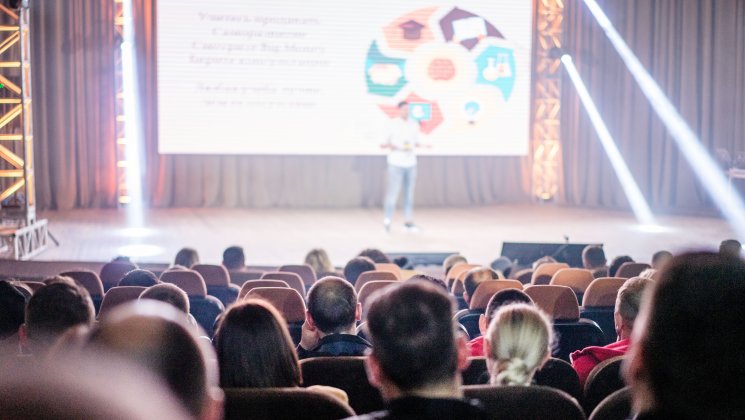Coping with future pandemics requires a considerate attitude and trust in the government
Imagining a future entirely different from today can be the most effective risk adaptation strategy. At the Scientific Advisory Board’s conference “Viirustega tulevikku” (“To the future with viruses”), a panel of top Estonian scientists and officials discussed what resources and decisions future pandemics require and what trends influence how Estonian society will cope with pandemics in the upcoming decades. The panel discussion “Pandemics in a future society” was moderated by Triin Vihalemm, Professor of Communication Studies at the University of Tartu.
Key takeaways from the panel discussion
- What helps better cope with future pandemics is cohesive societies, well-functioning health systems and qualified medical professionals, and greater trust in experts and the state.
- It is necessary to enhance the country’s capacity to use big data and artificial intelligence.
- More skills are needed to fight the spread of misinformation, while science communication must be more straightforward, well thought-out and emotional.
- Research with the data collected during the pandemic must continue.
What emerging trends could improve or worsen the way Estonian society copes with health crises over the next 20 years?
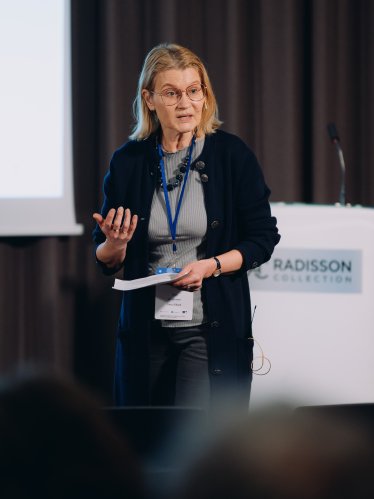
The head of the Scientific Advisory Board, Professor of Cell Biology of the University of Tartu, Toivo Maimets, admitted that the current level of prosociality in Estonian society is too low. “Societies that also think about others and the society as a whole, i.e. are more prosocial, coped better with the pandemic and can generally cope better with many things.”
Ruth Kalda, Professor of Family Medicine at the University of Tartu, pointed to what seems to be a positive trend, which can negatively impact society’s prosociality. Responsibility for one’s health lies entirely with the individual, which means it is up to the individual to decide whether to vaccinate, exercise or follow a healthy lifestyle. Kalda argues that this emphasis on individual autonomy and responsibility can have adverse consequences.
According to the Minister of Health, Riina Sikkut, greater social cohesion would help Estonia tackle the next crises better. The minister also underlined Estonia’s small size and trust in digital solutions as beneficial factors. “Because we are a small country and have the digital infrastructure in place, we can make knowledge-based and data-based decisions more efficiently than other countries.”
Deputy Director-General of the Health Board Mari-Anne Härma said that, for example, climate change and artificial intelligence would affect our lives and added that well-organised data collection and data systems would help us be ready for the next pandemic.
Andero Uusberg, Associate Professor of Affective Psychology at the University of Tartu, believes improving society's resilience and self-management skills would be beneficial. “During the pandemic, we saw how mental health issues gained importance – more solutions and services have become available. It could result in people being able to manage a little better.”
In addition, the audience voiced the views that our healthcare system needs to be kept at a high level considering the ageing doctors, staff shortages and funding challenges, that trust in the government, people’s data literacy, and the diversity of scientific expertise and competence need to be increased and that an essential infrastructure for data, knowledge and artificial intelligence must be built.
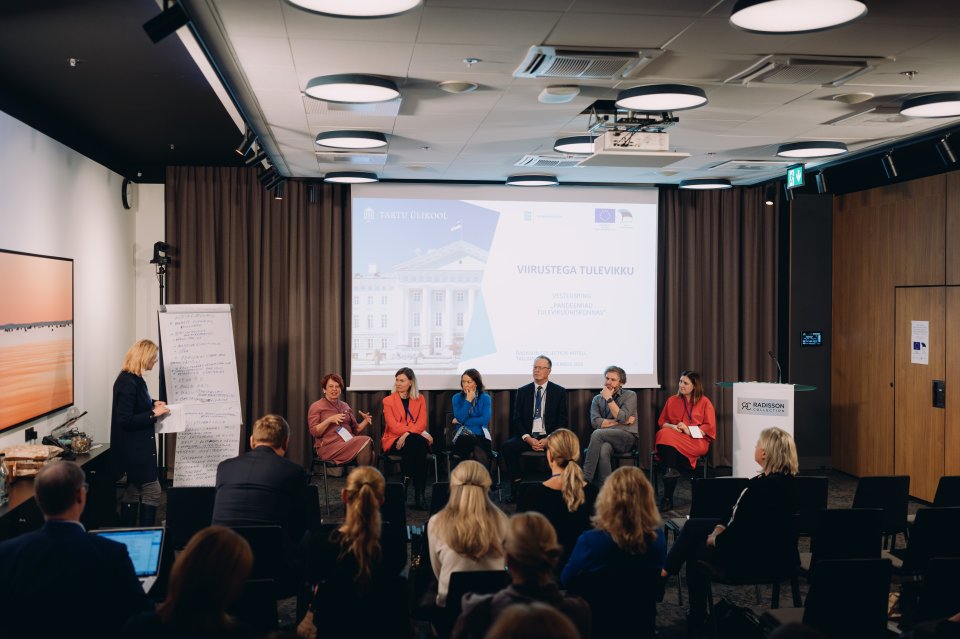
What risks should we consider, and what could we do more smartly and consistently to be better prepared as a society for future health crises?
“Trusting the government – that should start tomorrow,” said Professor Lutsar confidently. She believes this relates to the general attitude towards experts and teachers as authorities. The shaping of this attitude must start at home. Minister of Health Sikkut agreed that there is no trust in the government in Estonia. “It is still undermined by a lot of disinformation and misinformation, including focusing on issues of alternative therapies,” said Sikkut. Children can be educated at home and school. To build trust among adults, however, it is necessary to prevent the spread of misinformation, and politicians need to stop their power struggles and start working together for Estonia.
According to Mari-Anne Härma, there is much polarisation, and public authorities tend to criticise one another severely. However, the COVID-19 pandemic demonstrated that cooperation worked in times of crisis. “It was great to see the small-country charm revealed: everyone worked shoulder to shoulder, quickly and efficiently,” said Härma.
Other panellists and the audience also pointed to the need for effective communication and the fight against misinformation to build more trust in the government and the experts. “Just like misinformation is a targeted and consciously funded activity, so must also science communication be,” said Ruth Kalda.
Misinformation is often presented emotionally as black-and-white. However, researchers hold back emotions and speak of dry facts and figures. According to Mari-Anne Härma, scientists’ weakness as spokespersons is their factual accuracy: even if the scientific result is 95% solid, they still talk about the 5%. “In the name of the accuracy of fact, they do not want to round corners, which brings confusion into the communication,” said Härma. Members of the audience also agreed that the scientists’ messages should be more straightforward, bold and emotional.
What innovations, technological or social developments, which are not widespread yet, could become significant game-changers in ensuring preparedness for health crises over the next 20 years?
Collecting big data and applying artificial intelligence were suggested as the first drivers. However, the panellists admitted that we must not rely too much on artificial intelligence at this stage; therefore, we first need to improve access to science education and social data literacy, so that people would understand things.
Professor Lutsar emphasised the need to continue researching the vast amount of data gathered during the pandemic. “Then, we could have some kind of antiviral drug platform, an advancement in mRNA technology, or another new technology ready by the next pandemic,” said Lutsar.
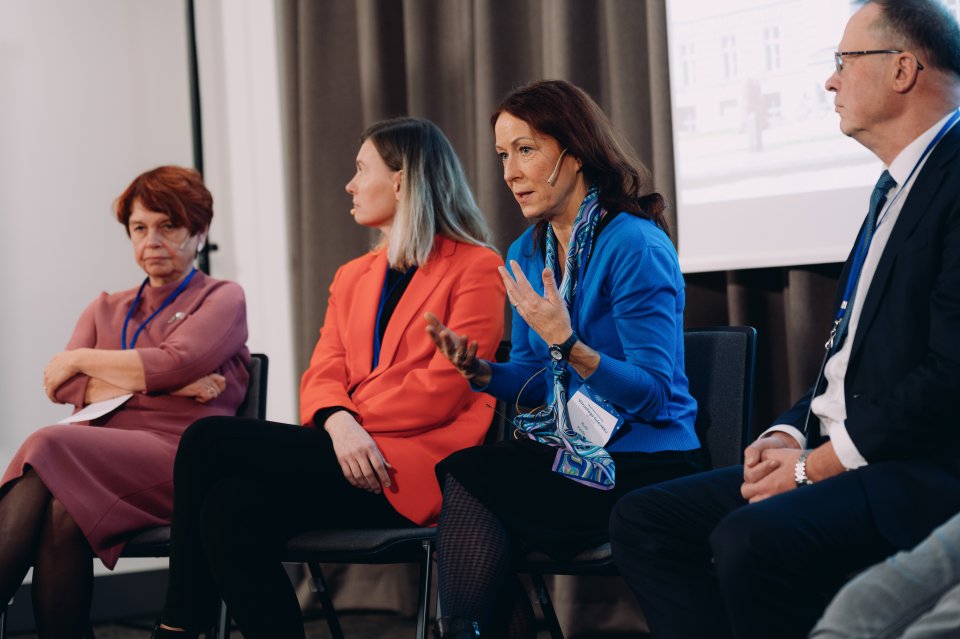
Professor Kalda added that communities should get more empowerment and the personalised approach will become even more important in medicine. “We can use all the data and the smart solutions we have to provide personalised medicines, vaccines and services to people.”
Andero Uusberg said that the Russian-speaking community started to watch more Estonian media channels and consume more media after the pandemic. “This is a social change that we can monitor smartly and think about how it can serve society as a whole,” Uusberg added.
Irja Lutsar concluded the discussion by saying that Estonia coped with the pandemic thanks to its excellent medical system, which will also play an enormous role in the next pandemic. “No matter how well we communicate, if we do not have good doctors, nurses and hospitals, the next pandemic will end very badly for us.”
The conference was organised by the University of Tartu in cooperation with the Ministry of Social Affairs and funded under the EU measure to respond to the COVID-19 pandemic.
Watch the recording of the panel discussion in Estonian on UTTV, starting at 3:52:00.

